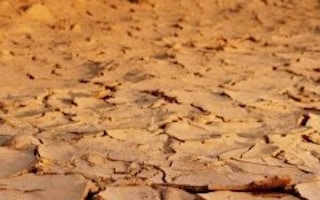All kinds of renewables are being explored through the DESERTEC Concept, but the sun-rich deserts of the world have a special role to play: within time span of six hours, deserts receive more energy from the sun than humankind consumes within one year. Thanks to heat storage tanks, concentrating solar-thermal power plants in the world’s deserts can supply electricity on demand day and night. This means they are an ideal complement to fluctuating energy sources such as wind and photovoltaic power. Thus, increasing the percentage of variable energy sources used in the planet’s electricity mix. What DESERTEC does is to combine climate protection and energy security with economic development and security policy. DESERTEC is a comprehensive solution which not only aims to cover increasing energy needs, but also reduces carbon emissions before global warming gets further out of control. Alongside climate protection and by ensuring the energy supply, it has multiple benefits in terms of development and security – i.e. providing needed seawater desalination. In March of 2012, one year after the nuclear disaster in Fukushima, the DESERTEC Foundation and the Japan Renewable Energy Foundation (JREF) began cooperation to promote an Asian Super Grid necessary for the expansion of renewable energy in Asia. The aim is to accelerate the deployment of renewable energy to provide secure and sustainable alternatives to fossil and nuclear energies. At the signing of the memorandum of understanding in Tokyo, the two non-profits announced that they will exchange knowledge and know-how to coordinate their work together in developing suitable framework conditions for the deployment of renewables and to establish transnational cooperation in Greater East Asia. The Asian Super Grid initiative will facilitate an electricity system based fully on renewable energy in Asia. This initiative envisions the interconnection of the national grids of Japan, China, Korea, Mongolia, and Russia with low-loss High-Voltage Direct Current (HVDC) transmission lines. These transmission lines will enable the delivery of electricity from the region’s most abundant renewable energy sources to its centers of demand. It also simultaneously balances out the peaks and troughs of fluctuating renewable energy sources over a wider area. Click here to read the story.
DESERTEC Foundation Begins Work on Asian Super Grid for Renewable Energy

Most popular
-
![Kelvin Wong DBS at ASIFMA 2024]() Cirebon 1’s financial advisor says the model "might not be replicable" nationwide as grid stability costs were overlooked …
Cirebon 1’s financial advisor says the model "might not be replicable" nationwide as grid stability costs were overlooked … -
![SG coffee]()
News / Carbon & Climate
How Southeast Asian countries are positioning themselves at COP29
Eco-Business takes a look at the key issues being pushed at the pavilions of Asean countries at the … -
![Transition credits explainer video_title card]()
Videos / Energy
How to close a coal plant early? Transition credits, explained
This mini-documentary examines how transition credits work and whether they can fund Southeast Asia's equitable switch to clean … -
![Woodside Energy AGM]()
News / Energy
Australia’s Woodside Energy defends climate strategy, cites cost as a barrier to gas decarbonisation
In an interview with Eco-Business, CEO Meg O'Neill says Woodside will have to engage investors on natural gas … -
![COP29_Bangladesh_Adviser_UN_Secretary_General]()
News / Energy
Can Bangladesh cut its reliance on fossil fuel imports?
As Bangladesh pays debts to Indian energy firm Adani Power, its new government wants to go green. -
![COP29_YACAP_Youth_Activist_Filipino]() Global Witness warns that mining for green energy is fuelling conflict and human rights abuses in Asia and …
Global Witness warns that mining for green energy is fuelling conflict and human rights abuses in Asia and …









